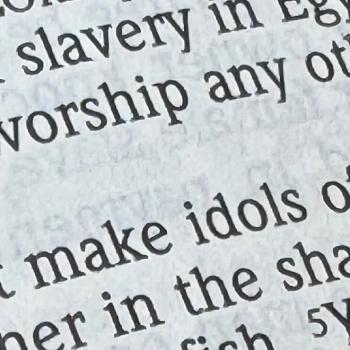Last Friday I re-blogged an article about the Brethren Church in the UK which was denied charitable status because it had a closed communion.
There is evidently some argument about whether this is the reason, or that the reason is that the church doesn’t do charitable work. A reader added a link about the Brethren Church which seems to make clear that it does do charitable work.
In my opinion, this discussion about whether or not the church complies with the law begs the question of whether or not the law itself should exist. From what I’ve read, it appears that the law on which this decision is based is one of the many new laws that seek to narrow religious freedom in the West. Rather than explain my concerns, I’ll let you read the article below and judge for yourself.
The Barnabasaid article reads in part:
MPs have made a robust defence of the Brethren church that has been denied charitable status by the Charity Commission in an important test case for churches and Christian organisations throughout the country.
In a well-attended debate led by Fiona Bruce, Conservative MP for Congleton, in Westminster Hall on Tuesday (13 November), members discussed the implications of the decision against Preston Downs Trust, which owns gospel halls in Torquay, Paignton and Newton Abbot.
There are over 370 Brethren Gospel Halls throughout the UK
Mary and Angus Hogg / CC BY-SA 2.0The Brethren church was denied charitable status over concerns that it does not satisfy the “public benefit” requirement; the lack of public access to the communion services held in gospel halls was specifically mentioned.
Ms Bruce and numerous other MPs highlighted the extensive work carried out by the Brethren in their communities, including support for families, care for young people, disaster relief, visits to prisons, hospitals, and donations of substantial funds to many charities. She said, “Surely no one can argue that they do not provide public benefit” and also defended the “openness” of the Brethren; they actively share their faith and make information about their services available to non-Brethren.
Ms Bruce said, “Restricting access to Holy Communion should not be a reason for refusing charitable status.”
Other MPs raised concerns about the wider implications of the Charity Commission’s decision for churches and Christian groups.
Charlie Elphicke, Conservative MP for Dover, said:
This is a test case on religion and the thin end of the wedge, particularly given that the Charity Commission’s letter says that even the Church of England would have to prove public benefit.
All churches now have to prove
their “public benefit”
Eamon Curry / CC BY 2.0Amendments under the Charities Act 2006 removed the presumption of “public benefit” for organisations that advance religion and required charities that had been registered under the Places of Worship Registration Act 1855 to seek registration with the Charity Commission. Churches therefore now have to demonstrate how they are of benefit to the public, whereas before it was taken as a given that they were.
“Public benefit” is not clearly defined in the Act, but the Charity Commission states that it must be identifiable, balanced against any harm, appropriate to the charity’s aims, and not “unreasonably restricted” in a way that might prevent some people from benefiting from the charity’s work. (Read more here.)














